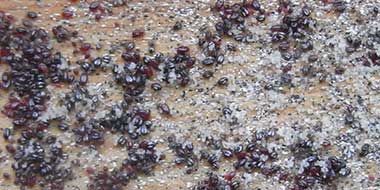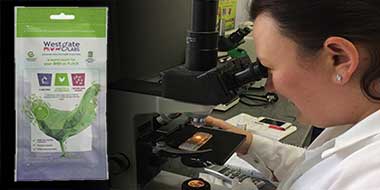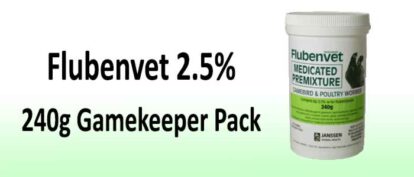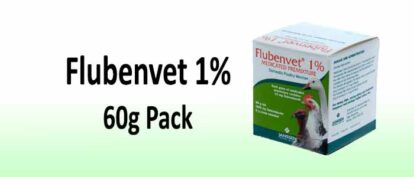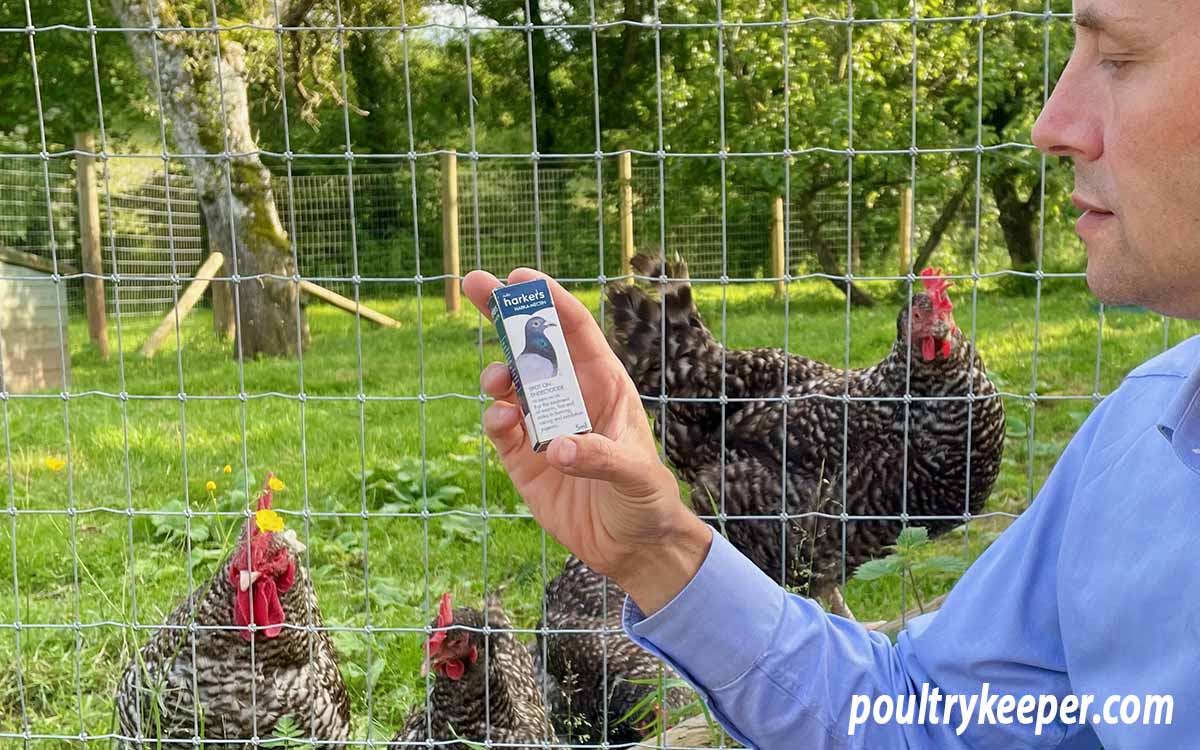
Ivermectin is an anti-parasite medication, effective against most worms (not tapeworm), mites, and lice, including scaly leg mite and northern fowl mite.
Ivermectin pour-on/drops are applied to the skin. They are usually sold under the Small Animal Exemption Scheme for rabbits, Guinea pigs and ornamental birds.
Products licensed under the Small Animal Exemption Scheme are not licensed for food-producing animals such as chickens. For that reason, there is no official information relating to the withdrawal period for eggs or meat following the use of Ivermectin Drops on poultry.
Licensed alternatives
Where there is a licensed alternative, vets will prescribe the licensed product. To treat worms – Flubenvet is usually the recommended licensed medication.
In the absence of licensed alternatives, veterinarians sometimes prescribe this product for poultry under their own clinical judgement to treat lice in poultry.
However, only a veterinarian can advise on such use. It would breach the veterinary medicines regulations and NOAH code of practice by supporting or encouraging the use of this product on a non-target species.
Tip: Check with your vet
Seek the advice of your vet before using Ivermectin on your chickens or other poultry. Avermectins are more toxic to waterfowl than chickens so this is particularly important if you are treating ducks or geese. You can buy Ivermectin here.
Uses of Ivermectin
Sometimes prescribed by Vets to treat endoparasites (worms) and ectoparasites (lice and most mites, including scaly leg mite).
Remember, red mites live in the house, so the housing will require alternative treatment. I have written about my Top 8 Red Mite Products here.
Formats available
Injectable, oral or drops for the skin. Pour on drops are usually prescribed for chickens. These are easy to put onto the back of the neck onto the bird’s skin with the pipette included with the product.
Dosage
Follow your vet’s advice. This will usually be according to the label, which has dosage for small birds such as pigeons. A certain number of drops will be required according to the bird’s weight.
For the treatment of an infestation, repeat doses are required, often weekly three times.
Withdrawal period of Ivermectin
Again, as advised by your vet, and it depends on the strength of the solution.
Egg withdrawal
Vets prescribing Ivomec Eprinex usually advise 7 days.
Slaughtering for meat for human consumption
Take extra care and advice from your vet; again, it depends on the strength of the solution. Vets Prescribing Ivomec Eprinex usually advise 28 days.
Safety first
Wear gloves and wash hands thoroughly with soap and water following treatment.
Category
POM-VPS
Storage
In original packing below 25ºC and out of reach of children.
Sold in the UK as Ivomec, Xeno 200, Noromectin, Harka Mectin, Heartgard30 and Acarexx.
The information given here is the opinion of the authors and should not be considered as professional advice. Where there is conflicting information, you should always follow the advice of your vet.



